
As a business owner, one of the most important contributing factors to maintaining a successful company is employing a hard-working, competent team of people; one where each person fulfills a role in keeping everything running the way it should be, with as few hiccups as possible. While new faces added to an already established team can be a great way to invigorate staffers with a fresh new perspective and take on how to approach the company’s needs, it’s important that brand-new faces don’t necessarily become de rigueur for your team.
What I mean by that is: If you’re constantly bringing on new people, and it’s less because of the business needs of a growing company and more because the same positions are continually reopening for one reason or another, then that constant onboarding of newbies is not actually a positive. Not only does it reflect negatively from a morale perspective, but it’s also costing you a heck of a lot of money.
According to a study from the Center for American Progress, replacing a midlevel position ($30,000–50,000 annually) will rack you up a “bill” of about 20 percent of that salary. Lower-level positions weren’t that far off, at 16 percent.
Sure, these types of expenses due to staff changes are inevitable throughout the lifespan of any business, but there are a few steps you can take to increase worker longevity within your company, lessening the likeliness that you’re maintaining a rotating door through which employees come and go in short cycles.
1. Refine your onboarding process.
A study released by the Society for Human Resource Management found that 50 percent of all hourly new hires left their positions with the first 120 days. The first few days on the job are crucial for any new employees’ impressions of you as an employer. While it’s not necessary to coddle anyone, make sure they’re properly integrated as they transition into their role with the company and not left feeling abandoned from the start. A good first impression goes a long way.
2. Make sure new hires are a fit … culturally.
Someone may be perfectly good on paper and yes, experience and background are huge components when making hiring decisions, but it’s important to factor in the culture of your workplace. Make the company’s culture apparent during the recruitment process; if it doesn’t jibe well with the person, it will reflect in their work.
3. Implement quarterly reviews.
Annual reviews are fine and well, but when you implement a series of smaller quarterly reviews, there are no surprises when it comes time for the big one at the end of the year. These allow you to express your feedback on each employee’s performance at regular intervals, plus it gives them more opportunities to formally discuss any issues they may have.
4. Compensate generously.
A person who is otherwise happy in their current position may opt to leave for one simple reason: more money. According to Forbes, the average person enjoys a 10–20 percent raise just for leaving. Keeping your crew competitively compensated can help deter them from the nuisance of switching companies.
5. Offer benefits not found elsewhere.
Find something you can offer your employees that helps set you apart from other employers. Perhaps it’s flexible work hours, or the ability to telecommute once a week. Or maybe providing free lunches is the way to go. You could even close up shop every now and then for a company-wide excursion. Perhaps offer rewards in the form of bonus time off for exceptional work. A little goes a long way here, and employees that feel appreciated tend to stick around longer.
Have any questions on how Actsoft can help you?
Share this post:
About the author : Joshua Pramis
Joshua Pramis is a writer and editor with an affinity for all things travel, tech, and food. His work has appeared on Travel + Leisure, Conde Nast Traveler, Digital Trends, and the Daily Meal, among other outlets. When he's not at home canoodling with his cats (which is typical), you'll find him running races, exploring new locales, and trying out different food venues in St Petersburg, Florida.

















 Encore & Geotab Drive
Encore & Geotab Drive

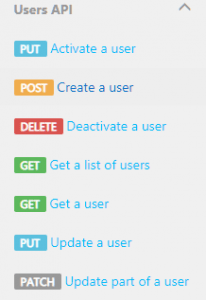



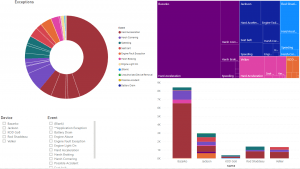




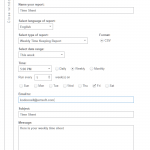










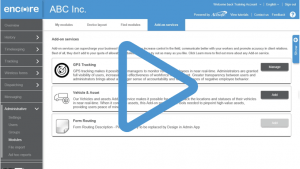

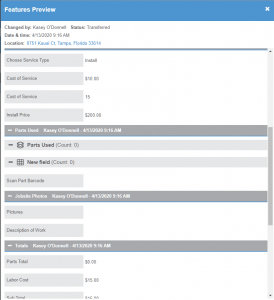
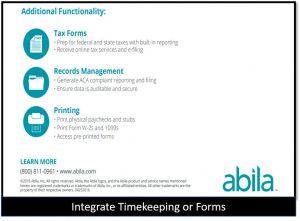
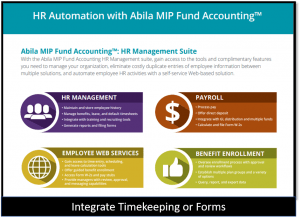

 Gain even greater insight into the daily activities of your fleet using the combination of Geotab and Actsoft. Geotab devices provide detailed data collection and seamless integration with our solutions; learn more about the ways your vehicles are being used daily with the power of this tandem.
Gain even greater insight into the daily activities of your fleet using the combination of Geotab and Actsoft. Geotab devices provide detailed data collection and seamless integration with our solutions; learn more about the ways your vehicles are being used daily with the power of this tandem.



 Actsoft partnered with Odin to provide our solutions overseas, through payment processing integrations. Odin helps us support user management for our software; customers can also purchase our products through Odin’s billing platform.
Actsoft partnered with Odin to provide our solutions overseas, through payment processing integrations. Odin helps us support user management for our software; customers can also purchase our products through Odin’s billing platform.

 VisTracks powers our Electronic Logging Device (ELD) solution, which enables transportation businesses to easily automate their hours of service logs, remain in governmental compliance, and reduce their potential to incur costly fines.
VisTracks powers our Electronic Logging Device (ELD) solution, which enables transportation businesses to easily automate their hours of service logs, remain in governmental compliance, and reduce their potential to incur costly fines. Integration between Actsoft solutions and BeWhere’s software products is available. Take your team’s asset tracking, cellular data connectivity, and field insight a step further with effective, cross-application compatibility.
Integration between Actsoft solutions and BeWhere’s software products is available. Take your team’s asset tracking, cellular data connectivity, and field insight a step further with effective, cross-application compatibility.
 CalAmp tracking devices for vehicles and assets alike are compatible with Actsoft solutions, making it easy for you to efficiently monitor your equipment and fleet cars. Help your team enhance accountability, safety, and savings through a combination of easily installed hardware and intuitive software.
CalAmp tracking devices for vehicles and assets alike are compatible with Actsoft solutions, making it easy for you to efficiently monitor your equipment and fleet cars. Help your team enhance accountability, safety, and savings through a combination of easily installed hardware and intuitive software.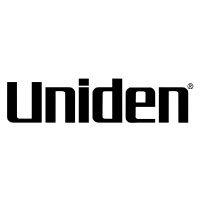 Our partnership with Uniden is ideal for companies looking to gain advanced diagnostics on their fleets. Uniden’s extensive product listing of car electronics like radios, dash cams, radar detectors, and in-vehicle communicators work in concert with Actsoft’s solutions to better connect your vehicles to the company headquarters.
Our partnership with Uniden is ideal for companies looking to gain advanced diagnostics on their fleets. Uniden’s extensive product listing of car electronics like radios, dash cams, radar detectors, and in-vehicle communicators work in concert with Actsoft’s solutions to better connect your vehicles to the company headquarters.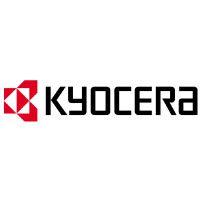 Kyocera offers a wide range of mobile devices, ranging in design from traditional phones to ultra-durable handset technology. Actsoft is able to equip organizations in a variety of different industries with solutions for improved business, while Kyocera supplies the technology they can flawlessly operate on.
Kyocera offers a wide range of mobile devices, ranging in design from traditional phones to ultra-durable handset technology. Actsoft is able to equip organizations in a variety of different industries with solutions for improved business, while Kyocera supplies the technology they can flawlessly operate on.

 Our software is the perfect complement to Apple’s user-friendly technology. Equip your workforce with the devices and solutions it needs for optimized productivity during daily operations with Apple and Actsoft.
Our software is the perfect complement to Apple’s user-friendly technology. Equip your workforce with the devices and solutions it needs for optimized productivity during daily operations with Apple and Actsoft.
 Actsoft and Sanyo teamed up to merge intuitive business management software with the technology of today. This partnership allows us to provide you with all the tools your team needs for improved workflows, better coordination, and optimized productivity.
Actsoft and Sanyo teamed up to merge intuitive business management software with the technology of today. This partnership allows us to provide you with all the tools your team needs for improved workflows, better coordination, and optimized productivity. Motorola’s mobile technology works in tandem with our solutions to provide extra versatility to your business practices. Coupled with our software’s features, Motorola’s reliable devices make connecting your workforce simpler than ever to do.
Motorola’s mobile technology works in tandem with our solutions to provide extra versatility to your business practices. Coupled with our software’s features, Motorola’s reliable devices make connecting your workforce simpler than ever to do. We’re able to bundle certain solutions of ours (including our Electronic Visit Verification options) with Samsung devices to help your team achieve as much functionality as possible, while keeping rates affordable. Use these combinations for accurate recordkeeping, improved communication, and smarter data collection in the field.
We’re able to bundle certain solutions of ours (including our Electronic Visit Verification options) with Samsung devices to help your team achieve as much functionality as possible, while keeping rates affordable. Use these combinations for accurate recordkeeping, improved communication, and smarter data collection in the field.